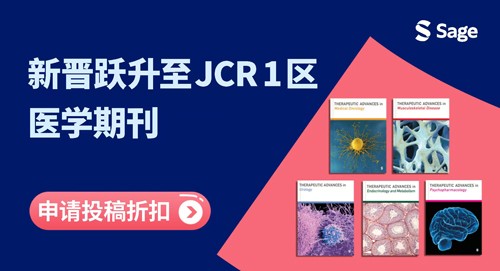-
The affordances of Artificial Intelligence (AI) and ethical considerations across the instruction cycle: A systematic review of AI in online higher education Internet High. Educ. (IF 6.8) Pub Date : 2025-07-19 Min Zhuang, Siyu Long, Florence Martin, Daniela Castellanos-Reyes
As Artificial Intelligence (AI) advances, discussions regarding its potential in education have attracted significant attention. This systematic review synthesizes AI affordances in online higher education, particularly identifying various ways AI is used throughout the online instruction cycle. We analyzed fifty-five studies focusing on publication trends, research methodology and quality, AI affordances
-
Empowering international PhD students: Generative AI, Ubuntu, and the decolonisation of academic communication Internet High. Educ. (IF 6.8) Pub Date : 2025-07-18 Lynette Pretorius, Huy-Hoang Huynh, Anak Agung Ayu Redi Pudyanti, Ziqi Li, Abdul Qawi Noori, Zhiheng Zhou
Generative AI (GenAI) provides distinct affordances that contribute meaningfully to learning. However, there are also several challenges, most notably ethical considerations. While much of the current research on GenAI in academia focuses on technical capabilities or ethical concerns, few studies have examined how GenAI can be leveraged to promote equity and inclusivity, particularly in academic communication
-
Parasympathetic and Sympathetic Reactivity and Their Coordination as Antecedents to the Cascade of Children's Callous-Unemotional Traits and Later Psychological Adjustment. Child Dev. (IF 3.8) Pub Date : 2025-07-18 Vanessa T Cao,Patrick T Davies,Morgan J Thompson,Mona El-Sheikh
This study examined whether a mediational cascade involving children's respiratory sinus arrhythmia (RSA) reactivity to a series of cognitive and socio-evaluative stressors, their callous-unemotional (CU) traits, and psychological adjustment was moderated by their cardiac pre-ejection period (PEP) reactivity. Using a multi-method, multi-informant design, 238 mothers and their preschool children (Mage = 4
-
The N2 During Preschool: Temporal Stability and a Test of Bidirectional Effects With Maternal Emotion Characteristics in a White, European-American Sample. Child Dev. (IF 3.8) Pub Date : 2025-07-18 Anahid Akbaryan,Reese C Burkey,Peter J Ramirez,Ashley L Walker,JungWon Choi,Sejal Mistry-Patel,Jennifer L Kling,Rebecca J Brooker
Despite well-documented behavioral changes, the development of neuropsychological substrates underlying inhibitory control remains unknown, hindering understanding of this construct over time. Stability and change in N2, a neural correlate of inhibitory control, and its crosslagged, bidirectional associations with maternal emotion characteristics were examined in 121 preschoolers (59% female, predominantly
-
Navigating the Double-Edged Sword: A Meta-analysis of the Effect of Digital Games on 21st Century Skills Educ. Res. Rev. (IF 10.6) Pub Date : 2025-07-16 Chao Cheng, Katy Ieong Cheng Ho Weatherly
Digital games are a double-edged sword; while they may pose potential negative effects for players, they are also recognized as valuable tools for fostering 21st century skills. Although 21st century skills have been widely promoted, this is the first meta-analysis to examine the effect of digital games on players’ 21st century skills, specifically focusing on all 4C skills: critical thinking, creativity
-
Multimodal Skills, but Not Motor Skills, Predict Narrative and Expressive Pragmatic Skills in Children With Typical Development and Neurodevelopmental Disorders. Child Dev. (IF 3.8) Pub Date : 2025-07-16 Júlia Florit-Pons,Mariia Pronina,Alfonso Igualada,Pilar Prieto,Courtenay Norbury
To see whether communicative-based multimodal skills (compared to non-communicative motor skills) predicted complex language skills, this study examined the predictive power of multimodal and motor skills on narrative and expressive pragmatic abilities across two groups. Participants were children with typical development (N = 88, Mage = 5.34, 48% female) and with neurodevelopmental disorders (N = 51
-
A Critical Appraisal of the Evidence on Racial Disproportionality in Special Education Except. Child. (IF 4.3) Pub Date : 2025-07-15 Rachel Elizabeth Fish, Kenneth Shores, João M. Souto Maior
This essay provides a two-pronged critical assessment of a subset of the literature on racial disproportionality in special education: that which aims to estimate racial disparities among otherwise similar children. This body of research has shown that Black students are less likely than comparable White students to receive special education, and has been interpreted by many to mean that current policies
-
Understanding the use of physical computing in K-12 education: A systematic literature review Educ. Res. Rev. (IF 10.6) Pub Date : 2025-07-14 Katherine Vergara, Pedro O. Rossel, Valeria Herskovic
Physical computing is a field that involves the use of sensors, actuators, and microcontrollers to build systems that interact with the environment. This approach has been used in education, particularly to teach computer science, programming, computational thinking, and design concepts. This systematic review explores the use of physical computing in K-12 education, with a focus on what educational
-
School readiness of dual language learners in Migrant and Seasonal Head Start (MSHS): The role of dominant language of classroom interactions and socioeconomic status Early Child. Res. Q. (IF 3.1) Pub Date : 2025-07-14 Ye Shen, Ji-Young Choi, Yimei Xiong
Children of migrant and seasonal farm workers (MSFWs) represent a highly disadvantaged and understudied population in the U.S., with unique educational and socio-linguistic needs. This study leverages nationally representative data on children of MSFWs attending Migrant and Seasonal Head Start (MSHS) programs to investigate how Spanish-English dual language learners’ (DLLs’) school readiness skills
-
The Role of Teachers' Emotions and Their Assessment in Professional Development Research: A Systematic Review. Educ. Psychol. Rev. (IF 8.8) Pub Date : 2025-07-12 Mareike Ehlert,Carola Grunschel,Friederike Koehler
Professional development (PD) both influences and is influenced by teachers' emotions, yet emotions remain unaddressed in PD frameworks. This study pursues three objectives: (1) to offer a theoretical framework illustrating how PD processes influence and are influenced by teachers' emotions, (2) to systematically review how empirical studies have assessed teacher emotions in PD, and (3) to synthesize
-
The Comprehensive Assessment of Theory of Mind (CAT): A Novel Measure of 3‐ to 8‐Year‐Old Children's Theory of Mind and an Evaluation of Mental‐State Scaling Child Dev. (IF 3.8) Pub Date : 2025-07-12 Megan J. Heise, Lindsay C. Bowman
This study describes a novel measure of children's Theory of Mind (ToM) development—called the Comprehensive Assessment of ToM (CAT)—that addresses limitations in existing ToM measures. This behavioral measure includes three–six items each about diverse desires, diverse beliefs, knowledge access, knowledge expertise, false belief, and visual perspective taking, as well as nonsocial representational
-
Characteristics of Interprofessional Collaboration Between Educational Psychological Services and Schools: A Scoping Review Educ. Res. Rev. (IF 10.6) Pub Date : 2025-07-11 Helene Hallaråker, Elisabeth Hesjeda, Christian Brandmo
Interprofessional collaboration is the preferred working approach for supporting children with special educational needs. Furthermore, educational psychology services (EPS) have been identified as a significant means of realizing the ideals of inclusive education for at-risk children. However, the literature on interprofessional collaboration is highly dominated by research in healthcare context with
-
When Money Matters Most: Unpacking the Effectiveness of School Spending Sociol. Educ. (IF 2.8) Pub Date : 2025-07-10 Emily Rauscher, Greer Mellon, Susanna Loeb, Carolyn Abott
Targeted school funding is a potentially valuable policy lever to increase educational equality by race, ethnicity, and income, but it remains unclear how to target funds most effectively. We use a regression discontinuity approach to compare districts that narrowly passed or failed a school funding election. We use close tax elections in nine states to identify effects of operating funds, and we use
-
The GenAI divide among university students: A call for action Internet High. Educ. (IF 6.8) Pub Date : 2025-07-09 Karley Beckman, Tiffani Apps, Sarah Katherine Howard, Claire Rogerson, Ann Rogerson, Jo Tondeur
The rapid pace of technological change with generative artificial intelligence is accelerating much faster than our capacity to understand and regulate it. Higher education institutions have been firmly focused on the impacts of this innovation on academic integrity while grappling with unknown longer-term impacts on students' academic study and future work. This mixed method study aims to capture
-
The conceptualisation of goal setting and goal orientation in higher education: A systematic literature review Educ. Res. Rev. (IF 10.6) Pub Date : 2025-07-08 Kõue Heintalu, Katrin Saks, Natalia Edisherashvili, Izaak Dekker
Student goals play a crucial role in both practice and theory in higher education, particularly for understanding and enhancing student motivation. However, on a conceptual level, goals are studied through separate and isolated frameworks, which complicates the ability of practitioners and researchers to combine insights from both streams of scholarship effectively. This systematic review aimed to
-
Active Learning Strategies in Video Learning: A Meta-Analysis Educ. Res. Rev. (IF 10.6) Pub Date : 2025-07-05 Yi Zhang, Rongna Li, Zhongling Pi, Jiumin Yang
Active learning strategies embedded in video content have become increasingly prominent tools for enhancing learners' educational experiences. However, the literature offers varied results concerning their effectiveness. In this research, we conducted a series of meta-analyses to assess the influence of active learning strategies on learners’ motivation, cognitive load, and learning performance. On
-
Exploring the role of early childhood educators’ emotion socialization strategies in the development of young children’s social and non-social play behaviors Early Child. Res. Q. (IF 3.1) Pub Date : 2025-07-04 Tiril Wilhelmsen, Ratib Lekhal, Veslemøy Rydland, Robert J. Coplan
It is widely postulated that caregivers’ emotion socialization strategies support children’s positive socio-emotional functioning with peers. However, this theoretical model has been rarely examined empirically in the context of early childhood education and care (ECEC), despite ECEC being a prominent environment for children to practice peer play (a robust marker variable for social and emotional
-
The impact of educational activities on professional identity formation in social sciences and humanities: a scoping review Educ. Res. Rev. (IF 10.6) Pub Date : 2025-07-02 Joram Pach, Malou Stoffels, Linda Schoonmade, Erik van Ingen, Rashmi A. Kusurkar
Higher education programs increasingly emphasize professional identity formation (PIF) within their curricula, particularly in fields such as medicine and teacher education. Programs in social sciences and humanities (SSH) also increasingly recognize their role in preparing students for professional futures, yet knowledge on PIF in these disciplines is less integrated into the body of literature. This
-
The Effects of Trauma-Informed Check-in, Check-out for Youth With EBD in a Residential Treatment Facility Rem. Spec. Educ. (IF 2.1) Pub Date : 2025-07-02 Aimee J. Hackney, Kristine Jolivette, Sara Sanders, Robin Parks Ennis, Nicole Cain Swoszowski, Ashley Salter Virgin, June Preast
Students with or at-risk for emotional and behavioral disorders served in residential facilities have been exposed to traumatic events at higher rates compared to their peers. Behavioral interventions may be more effective for this population if they include trauma-informed relationship building adaptations. One intervention that may be modified to include such adaptations is Check-in, Check-out (CICO)
-
Parallel empathy or reactive empathy? The role of emotional support provided by affective pedagogical agent in online learning Internet High. Educ. (IF 6.8) Pub Date : 2025-07-01 Yanqing Wang, Shaoying Gong, Yang Cao, Ying Liu
To increase human-computer interaction and motivate university students' online learning, this study investigated the effects of affective pedagogical agent (PA) providing parallel empathy and reactive empathy in an online learning scenario. In a 2 (Parallel empathy: yes vs. no) × 2 (Reactive empathy: yes vs. no) between-subjects design, 122 university students learned 10 psychological concepts about
-
Maximizing effectiveness of AI-generated instructors through human-like behavior and dynamic visual cues in instructional videos: Evidence from an eye-tracking study Internet High. Educ. (IF 6.8) Pub Date : 2025-07-01 Tao Xu, Qian Chen, Zhiwei Zhang, Bingyu Dong, Hui Zhang, Jie Bai, Yun Zhou
The rapid advancement of Artificial Intelligence Generated Content (AIGC) has revolutionized the production of instructional videos and lectures in MOOCs, opening a new chapter in their use for education. This technology enables the generation of talking instructors from text and images or clips of real people. However, the impact of behavioral fidelity and visual cues provided by these generated instructors
-
Measuring spelling skills: A meta-analysis of the convergence of dictation and error detection tasks Educ. Res. Rev. (IF 10.6) Pub Date : 2025-06-30 Darius Endlich, Wolfgang Lenhard, Peter Marx, Tobias Richter
Accurate spelling is essential for academic and professional achievement. Developing cost-effective assessments to provide early support for children experiencing difficulties with spelling is crucial. In the past, dictations have been the primary method for measuring spelling skills. However, given that reading and spelling rely on shared orthographic knowledge, detecting spelling errors might serve
-
-
From teacher motivation to teaching behaviour: A systematic review and theoretical framework of the mediating processes Educ. Res. Rev. (IF 10.6) Pub Date : 2025-06-28 Rebecca Lazarides, Ulrich Schiefele, Martin Daumiller, Markus Dresel
Teacher motivation plays a key role in achieving a high instructional quality. However, there is a clear need for more detailed research on the underlying mechanisms that link teacher motivation to high-quality instruction. In this systematic literature review, we synthesize existing empirical work examining the intrapersonal processes mediating the relations between teacher motivation and teaching
-
Meta–analyzing the impacts of social robots for children's language development: Insights from two decades of research from 2003 to 2023 Educ. Res. Rev. (IF 10.6) Pub Date : 2025-06-28 Xinghua Wang, Linlin Li, Qiyun Wang, Baichang Zhong, Yaqian Xu
Robotics technologies powered by artificial intelligence are revolutionizing language learning, particularly for children who are at critical stages of language development. With the increasingly prevalent use of social robots in children's language acquisition, however, a comprehensive understanding of their effectiveness in this regard remains lacking. To address this gap, this study conducted a
-
Neural Maturity of Encoding States Supports Gains to Memory Precision in Childhood Child Dev. (IF 3.8) Pub Date : 2025-06-28 Sagana Vijayarajah, Margaret L. Schlichting
Despite substantial improvements to memory precision in childhood, the neural mechanisms underlying these changes remain unclear. Here, 40 children (7–9 years; 22 females, 18 males; majority White) and 42 adults (24–35 years; 22 females, 20 males; majority White) modulated their approaches to memory formation—focusing on the specific details to encourage precision or general category to encourage imprecision
-
Automatic Extraction of Meaning From Visual Number Symbols Detected by Frequency‐Tagged EEG in Children Child Dev. (IF 3.8) Pub Date : 2025-06-28 Amandine Van Rinsveld, Christine Schiltz
Acquiring robust semantic representations of numbers is crucial for math achievement. However, the learning stage where magnitude becomes automatically elicited by number symbols (i.e., digits from 1 to 9) remains unknown due to the difficulty to measure automatic semantic processing. We used a frequency‐tagging EEG paradigm targeting automatic magnitude processing in children (N = 33, 5–10‐year‐old
-
Cognitive Load and Challenges in Self-regulation: An Introduction and Reflection on the Topical Collection. Educ. Psychol. Rev. (IF 8.8) Pub Date : 2025-06-27 Anique B H de Bruin,Eva M Janssen,Julia Waldeyer,Ferdinand Stebner
The effort monitoring and regulation (EMR) model integrates self-regulated learning and cognitive load theory to examine how students monitor, regulate, and optimize effort during learning. Since its introduction in 2020, it has inspired research that explores how to correct learners' misinterpretations of effort and metacognitive biases and how instructional interventions can improve learning strategies
-
“Well, Those Students Have a Name:” Special Educators’ Beliefs About Students Labeled With Emotional/Behavioral Disorders Except. Child. (IF 4.3) Pub Date : 2025-06-27 Hannah Morris Mathews, Lindsey Kaler, Malavika Ragunathan, Elizabeth Bettini, Kathryn M. Meyer
Teachers’ beliefs influence the educational experiences they provide for students with disabilities. Furthermore, beliefs are highly contextualized, necessitating careful attention to the contexts in which they are developed and deployed. Informed by DisCrit, we employed narrative analysis to explore the beliefs of five special educators working in self-contained settings serving students labeled with
-
Six‐Year‐Olds, but Not Younger Children, Consider the Probability of Being Right by Chance When Inferring Others' Knowledge Child Dev. (IF 3.8) Pub Date : 2025-06-26 Rosie Aboody, Julianna Lu, Stephanie Denison, Julian Jara‐Ettinger
When determining what others know, we intuitively consider not only whether they succeed but also their probability of success in the absence of knowledge (e.g., random guessing). Across three experiments (n = 240 North American 4–6‐year‐olds, data collected between 2020–2023) we find that 4‐year‐olds understand that tasks with a lower probability of chance success are harder. However, it is not until
-
The Brilliance-Belonging Model: How Cultural Beliefs About Intellectual Ability Undermine Educational Equity. Educ. Psychol. Rev. (IF 8.8) Pub Date : 2025-06-25 Christina A Bauer,Aashna Poddar,Eddie Brummelman,Andrei Cimpian
As societies worldwide grapple with substantial educational inequities, understanding their underlying causes remains a priority. Here, we introduce the Brilliance-Belonging Model, a novel theoretical framework that illuminates how cultural beliefs about exceptional intellectual ability create inequities through their impact on students' sense of belonging. The model identifies two types of widespread
-
The Effects of Universal Design for Learning on Fifth-Grade Puberty Instruction to Enable Accessibility for Students with Disabilities Except. Child. (IF 4.3) Pub Date : 2025-06-25 Sarah L. Curtiss, Melissa Stoffers, Amy Brown, Philinda Mindler
Puberty education is a widely accepted, critical component of sex education, yet little is known about its instruction. Universal Design for Learning (UDL) is a promising pedagogical approach for meeting the needs of diverse learners in the puberty classroom especially students with disabilities. This community-based participatory research project partnered with a community organization that provides
-
Understanding inattention, hyperactivity/impulsivity, and peer rejection in preschool: The potential role of conduct problems and prosocial behavior Early Child. Res. Q. (IF 3.1) Pub Date : 2025-06-25 Emily M. Glatt, Darcey M. Allan, W. John Monopoli
Peer relationships are imperative for healthy social and emotional development. In preschool, children are exposed to a new, structured environment, in which there is a sharp learning curve to adjust to unfamiliar expectations. Children with inattention (IA) and hyperactivity/impulsivity (H/I) may have limited social awareness and exhibit disruptive behaviors that lead to peer rejection. Beyond IA
-
Prevalence and Predictors of Caregivers’ Reports of Academic, Language, Social, and Behavioral Individualized Education Program Goal Domains Among School-Age Autistic Students The Journal of Special Education (IF 1.1) Pub Date : 2025-06-25 Nancy Susan McIntyre, Matthew Carl Zajic
The aims of this study were to (a) characterize the prevalence and interrelationship of Individualized Education Program (IEP) goals in academic (reading, writing, math) and developmental (language, social skills, behavioral) domains in a large national sample of autistic children across the elementary and secondary grade levels and (b) examine how demographic and developmental factors predict having
-
“It is almost impossible to get a spot when you need it”: Understanding parental knowledge and experiences of Canada’s new child care policy promoting access to quality early childhood education and care Early Child. Res. Q. (IF 3.1) Pub Date : 2025-06-24 Samantha Burns, Esther Yu, Jesseca Perlman, Kashish Kahlon, Michal Perlman
Starting in 2021/2022, Canada implemented a new early childhood education and care (ECEC) policy, the Canada-Wide Early Learning and Child Care (CWELCC). CWELCC aims to reduce the cost of child care to an average of $10CA/day. However, prior implementation of similar policies resulted in differential outcomes in terms of benefits received. The current mixed methods study examined 1341 parents’ knowledge
-
Decolonizing Agency: A Framework for an Inclusive Co-Design of Behavioral Support Systems in Indigenous Land Except. Child. (IF 4.3) Pub Date : 2025-06-23 Dian Mawene, Aydin Bal, Dosun Ko, Linda Orie, Elizabeth Schrader, Jahyun Yoo
Racial disproportionality in special education and school discipline remains a persistent social justice issue in the U.S. education system. Drawing from a 4-year-long school-community-university partnership within an Anishinaabe Band of Ojibwe in northern Wisconsin, we propose a theoretical and practical framework called decolonizing agency to address racial disproportionality through systemic transformation
-
The association between teacher self-efficacy and student academic performance: A systematic review and meta-analysis Educ. Res. Rev. (IF 10.6) Pub Date : 2025-06-21 Kang Ma, Michael Cavanagh, Junhua Zhang, Muhammad Chutiyami
This meta-analysis includes 71 studies representing 254619 teachers and the academic performance of their students. The results indicate significant but small effect sizes for overall TSE constructs on academic performance, r from 0.063 to 0.192. The two largest effect sizes are between overall TSE for subject teaching and overall TSE, outperforming the personal and general efficacy (Gibson & Demo
-
Sibling-Focused Family Prevention With Latinx Siblings in Middle Childhood: A Randomized Clinical Trial Spanning the COVID-19 Pandemic Child Dev. (IF 3.8) Pub Date : 2025-06-14 Kimberly A. Updegraff, Adriana J. Umaña-Taylor, Annabella Gallagher, Karina M. Cahill, Daye Son, Julissa G. Duran, Daniel Jose Sanchez, Mark E. Feinberg, Damon E. Jones
This pre-registered randomized clinical trial examined the efficacy of a prevention program on parenting of siblings and sibling relationships among Latinxs. Participants were 272 sibling dyads (82.9% Mexican) with 5th graders (Mage = 10.63; SD = 0.38; 51.8% female), their younger siblings in 1st to 4th grades (Mage = 8.18; SD = 1.06; 54.8% female), and their caregivers. Families were randomized to
-
The roles of early maternal parenting practices and children’s regulation in predicting English vocabulary in Spanish-speaking emerging bilingual children Early Child. Res. Q. (IF 3.1) Pub Date : 2025-06-19 Jamie Theresa Lopez, Tracy L. Spinrad, Jodi Swanson, Lillian Ramirez Vasquez
Many children in the United States are growing up in homes with a non-English primary spoken language. Because students must learn and perform in English-language classrooms, understanding early factors and processes involved in developing English vocabulary is critical. With a longitudinal panel model, we examined the prediction of fifth-grade English vocabulary skills from both extrinsic (i.e., mothers’
-
Enhancing online college students' self-regulated learning and performance through self-assessments and commitment strategies Internet High. Educ. (IF 6.8) Pub Date : 2025-06-18 Kun Huang, Anita Lee-Post
This study examines the impact of a combined self-assessment and commitment strategy intervention on college students' self-regulated learning (SRL) and academic performance in asynchronous online learning. Using an ex post facto control design, we compared students' performance and behavioral analytics across three course units in two consecutive years of a large online college course. Compared to
-
“This is me”: Using Bronfenbrenner's Systems Model to Prioritize Student and Stakeholders’ Voices in the Co-Design of Individualized Education Programs Except. Child. (IF 4.3) Pub Date : 2025-06-18 Melissa Fanshawe
Individualized Education Programs (IEPs) are used to document the needs of students with disabilities and outline provisions with which to support access and inclusion in educational settings. However, often the programs focus on students’ specific needs rather than giving agency to students or considering how wider ecosystems impacts students’ ownership of learning. This study adopted Bronfenbrenner's
-
The Great Leveler? Juvenile Arrest, College Attainment, and the Future of American Inequality Sociol. Educ. (IF 2.8) Pub Date : 2025-06-18 Garrett Baker, David S. Kirk, Robert J. Sampson
A burgeoning literature suggests that criminal justice contact in adolescence hinders educational attainment, but prior research primarily considers short-term outcomes and relies on self-reported arrest information. In this article, we leverage Illinois administrative records over 25 years linked to a multicohort longitudinal study to provide estimates of whether an officially recorded juvenile arrest
-
Temporal structuring in asynchronous discussions: Designing for collaborative learning in online university courses Internet High. Educ. (IF 6.8) Pub Date : 2025-06-15 Arita L. Liu, Philip H. Winne, John C. Nesbit
Asynchronous online discussions (AOD) offer pedagogical advantages as a social learning tool, but their success largely depends on students' motivated participation and sustained engagement. Recent research highlights the potential of leveraging temporal data to understand discussion dynamics and inform instructional strategies. However, the role of contextual factors in analyzing temporal data has
-
Changes in online engagement at the within-person level, profiles, dynamics and association with achievement Internet High. Educ. (IF 6.8) Pub Date : 2025-06-15 Mohammed Saqr, Sonsoles López-Pernas
While the dominant population-based research is immensely useful in revealing the general trends, it falls short of capturing the intraindividual –or within-person – changes on the individual level. Capturing the individualized processes helps create personalized interventions and advance our understanding of the person in which the learning process takes place. This study aimed at modeling the within-person
-
School Outness, Bias‐Based Bullying, and Bias‐Based Cyberbullying Across Europe Child Dev. (IF 3.8) Pub Date : 2025-06-12 S. Henry Sherwood, Alberto Amadori, Stephen T. Russell, Salvatore Ioverno
This study examined school outness, school climate, and country inclusivity to assess their associations with bias‐based bullying and cyberbullying among sexual and gender minority youth (SGMY) in Europe in 2020–2021 (N = 12,764; Mage = 16.07; 69% female; 43% cisgender girls; 31% bisexual). Outness was positively related to bias‐based bullying (β = 0.10, R2 = 0.21) and cyberbullying (β = 0.04, R2 =
-
Longitudinal Trajectories of Aperiodic EEG Activity in Early to Middle Childhood Child Dev. (IF 3.8) Pub Date : 2025-06-12 Dashiell D. Sacks, Viviane Valdes, Carol L. Wilkinson, April R. Levin, Charles A. Nelson, Michelle Bosquet Enlow
Aperiodic electroencephalography (EEG) activity is hypothesized to index biological mechanisms that underpin brain functioning. This longitudinal study characterized the developmental trajectories of the aperiodic slope (i.e., aperiodic exponent) and offset from infancy to 7 years of age in a US community sample (N = 391, 46.5% female, predominantly White; data collection 2013‐2023). The study further
-
Racial and Ethnic Disparities in Fathers' Food Parenting Practices and Children's Diets Child Dev. (IF 3.8) Pub Date : 2025-06-10 Yilin Wang, Brian K. Lo, In Young Park, Katherine W. Bauer, Kirsten K. Davison, Jess Haines, Rebekah Levine Coley
Racial and ethnic disparities in children's diets are prevalent. Little is known about how fathers' food parenting practices may contribute to these disparities. We examined racial and ethnic variations in food parenting practices and their associations with 2–6‐year‐old children's diets in a cross‐sectional sample of U.S. fathers surveyed in 2021–2023 (N = 1015; 16% Asian, 9% Black, 6% Hispanic, 70%
-
The role of friends in the development of children’s classroom behavioral engagement and peer acceptance in kindergarten: A dyadic approach Early Child. Res. Q. (IF 3.1) Pub Date : 2025-06-10 Marie-Claude Salvas, Fanny-Alexandra Guimond, Isabelle Archambault, Frank Vitaro, Philip MacGregor, Stéphane Cantin, Christelle Robert-Mazaye
Children’s classroom behavioral engagement and peer acceptance are linked to school readiness and positive educational outcomes. However, these developmental and social processes may depend on the social context in which children evolve. Thus, the friendships children develop in kindergarten may encourage classroom engagement and peer acceptance, based on the friends’ characteristics and the duration
-
Examining the dimensions of inhibition and its relations to early academic skills and externalizing behaviors in a preschool-age sample Early Child. Res. Q. (IF 3.1) Pub Date : 2025-06-10 Eric D. Hand, Christopher J. Lonigan
Inhibitory processes have been consistently linked to children’s academic and behavioral outcomes. Researchers have argued that response inhibition (i.e., the ability to suppress a prepotent response) and interference suppression (i.e., the ability to ignore task-irrelevant information) represent two distinct constructs in preschool-age children and may be differentially related to children’s academic
-
#MathActivities on #SocialMedia: Examining content, design, and alignment with mathematical cognition research Early Child. Res. Q. (IF 3.1) Pub Date : 2025-06-05 Mary DePascale, Juyun Lee, Eric Dearing
Social media is a popular tool for caregivers and educators to find and share learning activities for children. Yet there is little empirical work on the educational quality of these activities. The current study identified early learning (n = 108) and early math (n = 216) activities posted on TikTok. Activity videos were coded for the presence/absence of mathematical content and the extent to which
-
How are Early Head Start teachers’ professional development experiences associated with their work-related stress and qualities of teacher-child interactions? Early Child. Res. Q. (IF 3.1) Pub Date : 2025-06-05 Claire D. Vallotton, HyeonJin Yoon, Holly E. Brophy-Herb, Lisa Knoche, Jayden Nord, Ann M. Stacks
Professional development is a necessary support for both teachers’ well-being, and high-quality teacher-child interactions, which are the central mediators of the effects of early care and education on children’s development. Among teachers of older children, effective professional preparation is associated with lower work-related stress and higher classroom quality, but these associations have not
-
Need for Cognition Predicts Academic Interest Development but Not the Other Way Around: A Longitudinal Study of Secondary School Students Child Dev. (IF 3.8) Pub Date : 2025-06-04 Julia Matthes, Vsevolod Scherrer, Franzis Preckel
Need for cognition (NFC) reflects the tendency to enjoy and engage in cognitive challenges. This study examines the relations between NFC and academic interest among 922 German secondary school students (academic track) assessed four times in Grades 5–7 (initial age M = 10.63, SD = 0.55; 41% female; 90% first language German) in mathematics, German, and English. Data were collected between 2008 and
-
“Here, Let Me Do It for You”: Psychological Consequences of Receiving Direct and Indirect Help in Childhood Child Dev. (IF 3.8) Pub Date : 2025-06-03 Jellie Sierksma, Eddie Brummelman
What are the psychological consequences of receiving direct and indirect help in childhood? We conducted three preregistered experiments (N = 619, 7–9 years, 80% Dutch, 51% girls, 49% boys, mostly higher socioeconomic status) in the Netherlands (July 2020–July 2022). Children received direct help (correct answer), indirect help (hint), or no help. An internal meta‐analysis showed that children who
-
Childhood Environmental Unpredictability and Adolescent Mental Health and Behavioral Problems Child Dev. (IF 3.8) Pub Date : 2025-06-03 Kalsea J. Koss, Sydney Kronaizl, Rachel Brown, Jeanne Brooks‐Gunn
Childhood adversity takes a toll on lifelong health. However, investigations of unpredictability as a form of adversity are lacking. Environmental unpredictability across multiple developmental periods and ecological levels was examined using a multiethnic, longitudinal birth cohort (1998–2000) oversampled for unmarried parents. Data were from the Future of Families and Child Wellbeing Study (N = 4898
-
Evaluating the impact of online course development and teaching certificate academy on university faculty teaching practices through student learning experiences and faculty perceptions Internet High. Educ. (IF 6.8) Pub Date : 2025-06-02 Nedim Slijepcevic, Wanju Huang
This study evaluates the effectiveness of a faculty professional development (PD) course titled – Online Course Development and Teaching Certificate Academy (OTA), which focuses on the technology, pedagogy, and instructional design concepts essential for transitioning to online classrooms. OTA follows the Community of Inquiry principles by integrating social, teaching, and cognitive presences throughout
-
Teaching Lessons, Learning Words: Mothers' and Fathers' Sensitivity During Teaching Uniquely Mediates Associations Between Early Familial Socioeconomic Risk and Preschoolers' Receptive Language Development Child Dev. (IF 3.8) Pub Date : 2025-06-02 Lindsay Taraban, Daniel S. Shaw, Kristin B. Nordahl, Ane Nærde
Observed parental sensitivity during a parent–child teaching task and free‐play task was tested as mediators of the association between family socioeconomic risk and child receptive language at 48 months, consistent with family investment theory. Parents (n = 881 mothers; 624 fathers, data collected between 2006‐2008) and their 5‐month‐old children (52% male) were recruited from public health clinics
-
AI in higher education: A bibliometric analysis, synthesis, and a critique of research Internet High. Educ. (IF 6.8) Pub Date : 2025-06-01 Ahmed Lachheb, Javier Leung, Victoria Abramenka-Lachheb, Rajagopal Sankaranarayanan
To better characterize and understand AI in higher education and its role in relation to educational disparities and inclusivity, this paper presents a comprehensive bibliometric assessment of research on AI in higher education. Using quantitative topic modeling and qualitative analysis methods, this study describes: (1) the research landscape of AI in higher education and (2) the common topics of
-
Promoting inclusive practices with emerging technologies in higher education: Faculty professional development through blended-learning Internet High. Educ. (IF 6.8) Pub Date : 2025-05-31 Anabel Moriña, Víctor H. Perera
University institutions face the challenge of training faculty in inclusive digital skills to provide quality education for all. This paper presents a study that designed, developed, and evaluated a blended-learning training programme for faculty in Spain, focusing on emerging technologies from an inclusive perspective. A qualitative methodology was employed, incorporating a case study approach with
-
Children Strategically Decide What to Practice Child Dev. (IF 3.8) Pub Date : 2025-05-31 Daniil Serko, Julia Leonard, Azzurra Ruggeri
Adjusting practice to different goals and characteristics is key to learning, but its development remains unclear. Across 2 preregistered experiments, 190 4‐to‐8‐year‐olds (106 female; mostly White; data collection: December 2021–September 2022) and 31 adults played an easy and a difficult game, then chose one to practice before a test on either the easy, difficult, or a randomly chosen game. All children
-
The interplay among digital distraction, self-regulation of learning tendencies, and motivational influences: A transnational investigation Internet High. Educ. (IF 6.8) Pub Date : 2025-05-30 Abraham E. Flanigan, Anna C. Brady, Mete Akcaoglu, Yan Dai, Sungjun Won, Bridget K. Daleiden, Kendall Hartley
College students' misuse of mobile devices during class for off-task purposes is a global issue that harms learning. While prior studies examined device misuse frequency within individual countries, no known studies have directly compared transnational differences in this behavior, leaving little known about whether crosscultural differences influence this behavior. This study investigates whether






























































 京公网安备 11010802027423号
京公网安备 11010802027423号